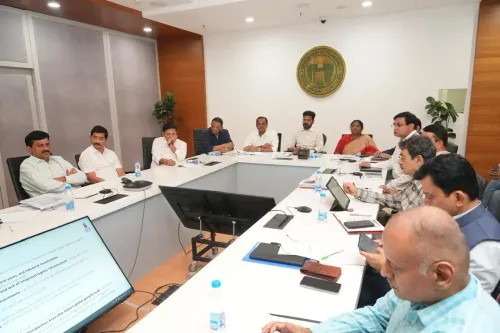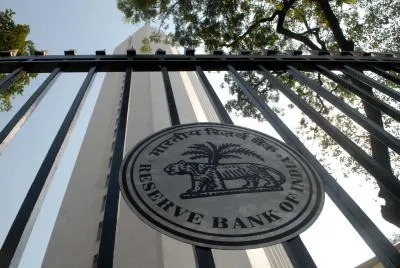What Does the IMF Report Reveal About Pakistan’s Energy Crisis?

Synopsis
Key Takeaways
- IMF report reveals mismanagement in energy sector.
- Circular debt poses significant economic risks.
- Political patronage undermines regulatory effectiveness.
- Supplementary grants bypass parliamentary oversight.
- State-owned enterprises report substantial financial losses.
New Delhi, Nov 27 (NationPress) The ongoing energy crisis in Pakistan has again attracted international attention, particularly through a revealing report from the International Monetary Fund (IMF).
The recent Governance and Corruption Diagnostic Assessment: Pakistan (November 2025) illustrates a disturbing scenario where the country's power and gas sectors are burdened by severe debt due to political favoritism, inadequate oversight, and years of mismanagement.
Central to this crisis is Pakistan’s circular debt — a colossal financial strain that poses a significant threat to the nation’s economic health.
The IMF asserts that this debt isn't merely a product of unfortunate circumstances or global events, but rather the consequence of decisions made by those in authority.
The report characterizes the energy sector as a “crime scene”, where connections often outweigh qualifications.
It points out that the leadership of essential regulators like NEPRA and OGRA is often selected based on relationships rather than expertise.
Instead of introducing fresh talent, extensions are frequently granted, particularly in OGRA, allowing the same individuals to remain in power without accountability.
In certain instances, a single official holds dual high-ranking positions simultaneously, which undermines regulatory functions and checks and balances.
The government’s reliance on supplementary grants — funds allocated outside the standard budget — has also raised concerns.
The IMF observes that in 2023–24, every additional rupee was directed towards the power and petroleum sectors.
In previous years, a substantial portion of these supplementary expenses also supported these distressed sectors.
The report cautions that such financial practices bypass Parliament and erode fiscal discipline.
Pakistan’s state-owned enterprises (SOEs), including electricity distribution companies (DISCOs) and gas firms, represent another significant source of financial losses.
Despite generating over 13 trillion rupees in revenue, federal SOEs reported a net loss of 30 billion rupees in 2024.
The IMF indicates that these losses are driven not only by inefficiency but also by rampant theft and political meddling.
Influential groups often consume electricity and gas without compensating, banking on the government to absorb the financial burden.
Pakistan’s growing stock of government guarantees — now totaling 3.4 trillion rupees, primarily associated with the power sector — raises serious concerns.
These guarantees present potential liabilities that could become immediate obligations if state-owned enterprises fail to meet their financial commitments.
The IMF warns that such risks leave the government exposed and heighten the likelihood of future bailouts.
Even the Special Investment Facilitation Council (SIFC), which the government promotes as a pivotal reform agency, is mentioned cautiously in the report.
The IMF warns that its extensive powers and immunity could result in misuse unless transparency is guaranteed.









